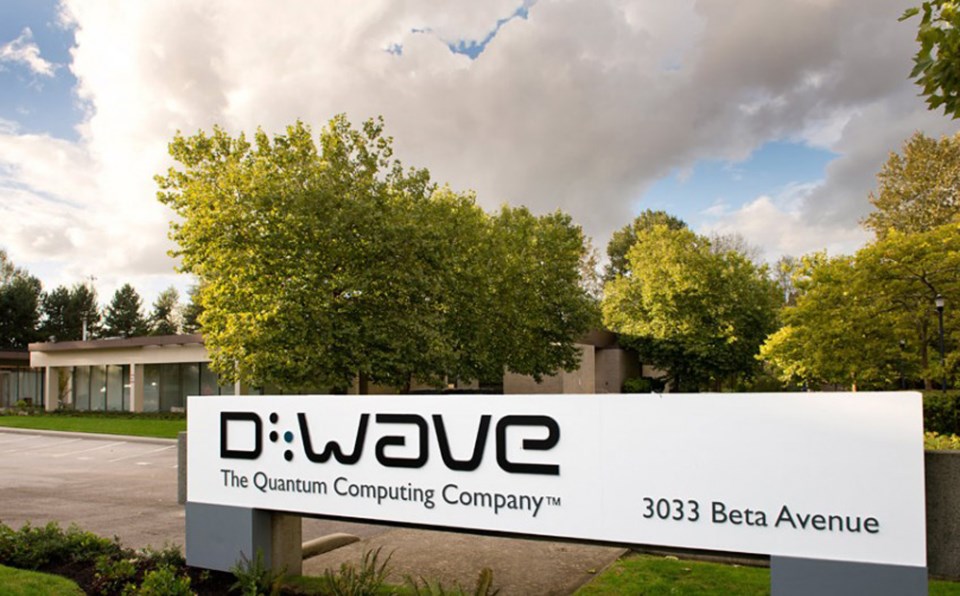B.C. is birthing yet another unicorn with Burnaby-based D-Wave Systems Inc. making a play for the public markets in a deal worth up to US$340 million.
The quantum computing firm has inked an agreement with special purpose acquisition company (SPAC) DPCM Capital Inc. that sees the two entities fall under the umbrella of a newly created parent company: D-Wave Quantum Inc.
While DPCM is based in the Miami, D-Wave Quantum is set to operate primarily out of Burnaby under the leadership of current D-Wave Systems CEO Alan Baratz, who is based outside Seattle.
A D-Wave spokesman said he would clarify where the new parent company would be legally domiciled.
D-Wave says it’s pursuing the deal, expected to close sometime in the second quarter, to ramp up its quantum computing offerings to blue-chip customers.
The transaction has already been approved by both D-Wave’s and DPCM’s respective boards, and would amount to a US$1.2-billion valuation for the original D-Wave Systems, according to a company spokesman.
Once the deal is complete, the new company would trade on the NYSE under the symbol QBTS.
D-Wave Quantum — the parent company — is set to receive US$300 million from DPCM’s trust account, as well as US$40 million via private investment in public equity (PIPE) from a group of strategic and institutional investors. The PIPE is being led by PSP Investments, Goldman Sachs Asset Management, NEC Corp. (TYO: 6701), Yorkville Advisors and Aegis Group Partners.
Quantum Computing
Quantum computers differ from regular computers that use two bits – ones and zeroes – to make calculations.
Instead, quantum computers rely on qubits, which possess a “superposition” allowing it to be one and zero at the same time. This means it can calculate all possible values in a single operation and greatly reduce the amount of time it takes to make complex calculations.
The B.C. firm is a pioneer in its field, building what many consider to be the world’s first commercially viable quantum computer. It has sold systems to Google, U.S. defence contractor Lockheed Martin Corp. (NYSE:LMT) and Los Alamos National Laboratory.
But Baratz revealed last year D-Wave has shifted its business model and is no longer selling the physical systems.
Business Model
“Our entire business model now is cloud-based,” he said in March 2021.
“We sold a few systems early on in the life of the company. But we realized that it's important to put a business model in place that would allow us to access as many customers as possible and allow those customers to grow with us.”
Customers include Volkswagen Group (ETR: VOW3), Toyota Motor Corp.’s (TYO: 7203) R&D Labs, Accenture Plc (NYSE:ACN), NEC Corp. and Save-On-Foods.
Last year, D-Wave embarked on a $120-million project aimed at advancing its quantum computing systems. The federal government committed $40 million to the project.
The company said it would be creating 200 jobs as it builds a new and more powerful processor. D-Wave also committed to spend $480 million on research and development as well as hiring up to 10 co-op students.
“It's crucial that in addition to providing innovative hardware software and services, we also build a commercial base that advances the development of open source tools to expand the widespread use and knowledge of quantum computing,” Baratz said at the time.



